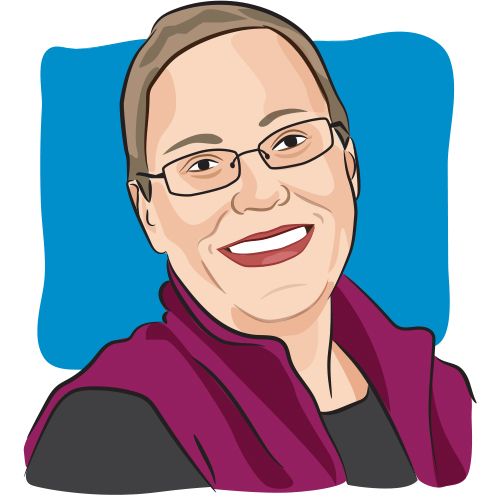Sometime Risk for Breast Cancer is All in the Family
Prompted by a celebrity diagnosis of breast cancer, I looked at tools that could help my own kids.

Though it’s been eclipsed by Princess Catherine’s cancer diagnosis, there was a celebrity news story just days earlier that truly captured my attention. Olivia Munn, an actress from television and movies, shared that she had received a breast cancer diagnosis in 2023 shortly after a genetic test, where she was negative for breast cancer genes like BRCA 1/2 and PALB2, and a clear mammogram.
Munn credited her doctor with taking the additional step of doing a personalized risk assessment, which led to an MRI, ultrasound and biopsy.
The story Munn told was especially pertinent to me because I have metastatic breast cancer, one first-degree relative had breast cancer and I have three children all in their 20s. My mom’s early-stage diagnosis in her 70s meant that my risk was somewhat increased. Like Munn, my genetic test was negative for genes known to be associated with increased breast cancer risk.
What I liked about Munn’s story was that her doctor did the risk assessment with her, and they decided on a next step based both on that assessment and a discussion. That next step led to another and so on, and now hopefully, Munn will remain breast cancer-free for the rest of her life.
Tools like breast cancer risk calculators are helpful for our own personal understanding and knowledge about our individual risk, but what really mattered here was that her doctor was paying attention and took action. She didn’t minimize Munn’s risk just because she's relatively young at 43 years old and healthy, or that she was negative for breast cancer-associated genes. She looked at what she saw and decided a reasonable step was an additional test.
That is what I hope for with my own children. There is no substitute for health care providers who are proactive in their care and don’t attempt to minimize risk. It can be hard for young adult people to have their concerns taken seriously, and if a risk assessment tool can help spur a deeper conversation, then they are invaluable. If people in their 20s still behave the way I did at that age, a serious health issue is the last thing on the mind, so I am grateful for any person, celebrity or not, who chooses to share openly about their experiences with cancer.
A mom can only do so much pestering about health and healthcare appointments.
There are several breast cancer risk assessment tools available online. One word of caution is that the risk assessment doesn’t always match actual experience. It does not predict cancer. It provides a risk assessment based on other people who match you by things like age, when/if you first gave birth, race and family history of breast cancer. When I put in the facts from the day before my diagnosis, I am at a very slightly elevated risk for the immediate future but a substantially greater lifetime risk. Whatever spurred my HER2 metastatic breast cancer, the algorithm didn't see it.
That said, if I were cancer-free and taking it today, I would bring it up with my primary care physician and hopefully she would be open to really talking about my risk.
There are other shortcomings, notably that most do not have an option for women under 35, an age group with growing incidence, and none include men among the ones I tested. Because my kids are in their 20s, the tool of choice would be the IBIS Breast Cancer Risk Assessment Calculator. Another risk assessment out there is the BWHS Breast Cancer Risk Calculator created specifically for Black women in the US.
I am a firm believer in the idea that knowledge is power, as I last wrote about the signs and symptoms of metastatic breast cancer. Cancer is tricky and fickle. No single test will tell you everything, but the more you know and the more you talk to your care team, the more likely it is that you will receive the best possible care for whatever you might face.
For more news on cancer updates, research and education, don’t forget to subscribe to CURE®’s newsletters here.
FDA, Cancer Vaccine Updates and a Misguiding of Breast Cancer Treatment
February 5th 2024One cancer vaccine may still be years away from being available, a breast cancer test may be misguiding treatments for Black women and the review of two oncology regimens are being expedited by the FDA.
Listen